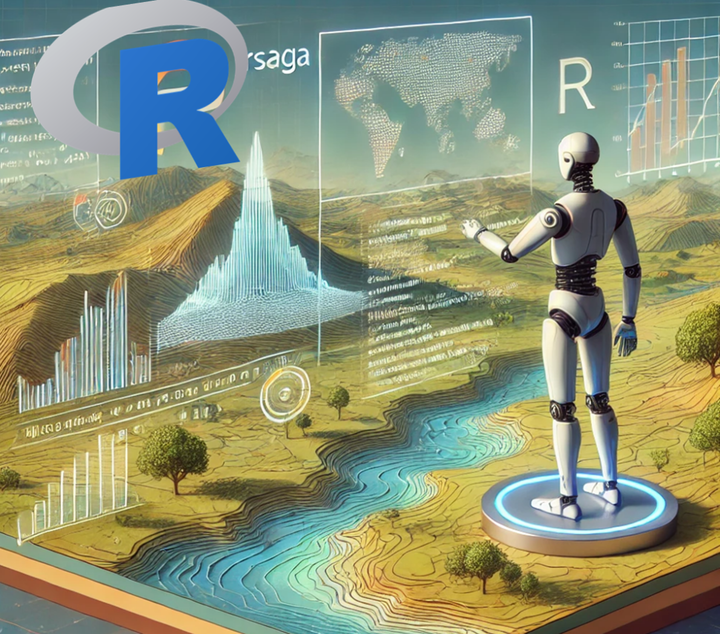Announcing the New RSAGA Release
Now Compatible with SAGA GIS 9.7.2

TL;DR
I am pleased to announce the release of a new version of RSAGA, the R package that provides a seamless interface from R to SAGA GIS for geospatial analysis, digital terrain analysis, and geocomputing. This update ensures compatibility with the latest versions of SAGA GIS, now supporting up to SAGA 9.7.2, and continues to offer an efficient workflow for integrating SAGA’s powerful geoprocessing tools within R.
A Widely Used Tool in Geographic Data Science
Since its initial release in 2008, RSAGA has become a widely adopted tool among researchers and practitioners working with geospatial data. According to DataScienceMeta, RSAGA is among the top 10% most downloaded R packages, with over 245,000 downloads. These numbers reflect the importance of SAGA GIS for a broad range of applications in geographic data science, environmental modeling, and digital terrain analysis, creating a demand for an integration with the leading statistical programming environment, R.
RSAGA has recently reached 100 citations in Google Scholar as researchers in diverse fields have leveraged its capabilities, including:
- Hydrology & Water Resources: Used for watershed delineation, stream network extraction, and hydrological modeling.
- Geomorphology & Terrain Analysis: Applied in studies focusing on landform classification, slope stability, and geomorphic distribution modeling.
- Environmental Science & Ecology: Used in habitat modeling, land cover classification, and environmental risk assessment.
- Soil Science & Agriculture: Supports research in soil property mapping, digital soil mapping, and precision agriculture.
For those interested in a practical example of RSAGA in action, the RSAGA vignette features a case study on landslide susceptibility mapping, demonstrating how the package can be used in nonlinear statistical modeling of Earth surface processes.
Citing RSAGA
As RSAGA continues to support geospatial research and applications, I would like to remind users to properly cite R packages in their academic work. Citing software tools and R packages not only acknowledges the contributions of developers but also enhances the transparency and reproducibility of scientific research.
If you use RSAGA in your work, please cite it as follows:
Brenning, A., Bangs, D., Becker, M., Schratz, P., & Polakowski, F. (2025). RSAGA: SAGA Geoprocessing and Terrain Analysis. R package version 1.4.2. Retrieved from https://CRAN.R-project.org/package=RSAGA
You can also retrieve the most up-to-date citation by running the following command in R:
citation("RSAGA")
Acknowledgments
Many thanks to the SAGA GIS developers, the CRAN team and the R community for their tremendous work!
Happy mapping and modeling!
References
Brenning, A., Bangs, D., Becker, M., Schratz, P., & Polakowski, F. (2025). RSAGA: SAGA Geoprocessing and Terrain Analysis. R package version 1.4.2. Retrieved from https://CRAN.R-project.org/package=RSAGA